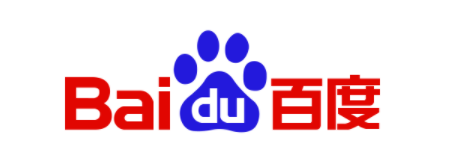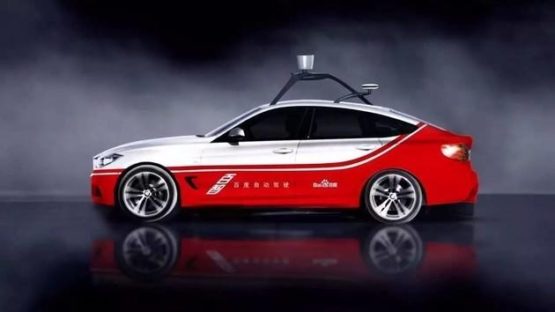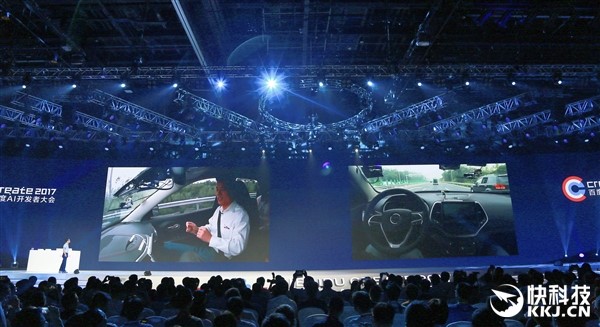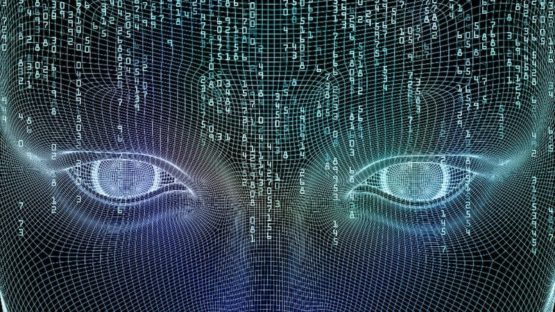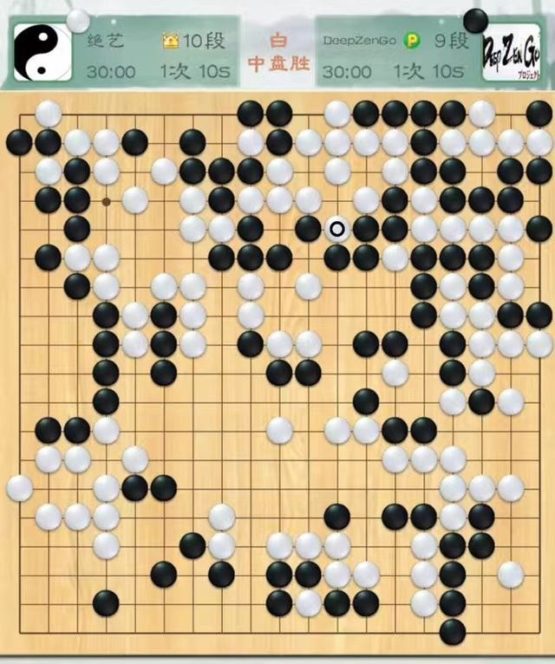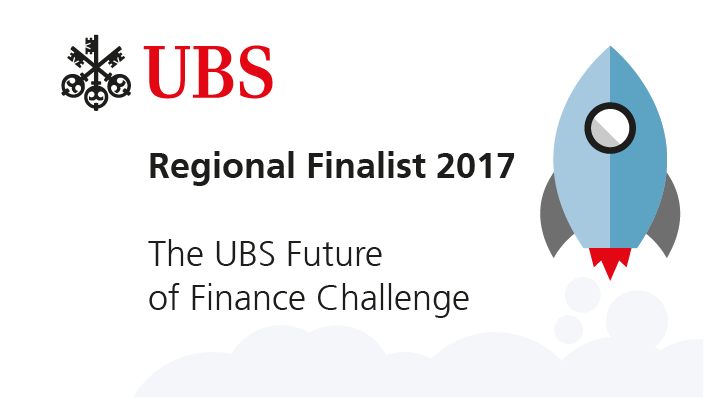China AI: A Latecomer In AI Industry Seeking To Surpass Predecessors

This article was written by Mingyue Liu, a financial analyst at I Know First.
China AI: A Latecomer In AI Industry Seeking To Surpass Predecessors
“We are not trying to create human-like machines, we are trying to build machines that can do things humans can’t.” (Jack Ma, founder and executive chairman of Alibaba Group)
Summary:
- Baidu’s achievements and plans in Artificial Intelligence
- Alibaba’s achievements and plans in AI
- Tencent’s achievements and plans in the field
Baidu, Alibaba, and Tencent are believed to be the “Big Three” in China, also known as BAT, that are making massive investment and noticeable achievements in AI field.
Baidu (NASDAQ: BIDU)
Baidu was the first one in BAT to launch into AI technology. According to BAT-AI Human Resource Data Report, Baidu is currently leading the Big Three, with 2.54% of its employees dedicating to AI technology, followed by Tencent (2.03%) and Alibaba (1.91%).
Picture Identification
Baidu has been emphasizing this field since it dipped its toe in AI. For now, Baidu’s facial recognition technology can capture 72 facial features, and identify human faces within 100 milliseconds with accuracy of 99.77%.
Baidu has partnered with China Southern Airlines to launch face-scan boarding.
Voice Recognition
Baidu is believed to be ahead of its close peers in this field. In a quiet environment, Baidu’s voice recognition technology can identify up to 97% voice instructions in Mandarin. In addition, Baidu’s lab in the Silicon Valley developed Deep Speech technology, which is based on deep learning.
Last October, Baidu introduced an application called TalkType, with which people can avoid typing and speak instead.
In March, Baidu introduced another application called SwiftScribe, which would be a revolution to shorthand industry. This application can convert audio files into text files, and it can do this 1.7 times faster than humans.
In June 2017, Baidu cooperated with Simeji, the largest Japanese input method provider, to integrate Baidu’s voice recognition technology. This partnership makes Simeji the only input keyboard in Japan that supports voice inputs.
Auto-driving vehicles
Baidu is at the front line of developing driver-less vehicles. At the end of 2015, the company announced the success of its auto-driving cars. In September 2016, Baidu earned the self-driving license in California, U.S.
In April 2017, Baidu officially launched “Apollo”, a plan that is aimed at providing an “open, complete, and safe platform” to automobile industry. This platform was called by British Financial Times “the Android in vehicle industry”. The 2017 China-Germany Summit held in June witnessed a strategic partnership shaping up, which united Baidu and German vehicle manufacturers, Continental and Bosch. This partnership brings Baidu one step closer to its lofty ambition.
At the 2017 Baidu Create Conference on July 5, Yanhong (Robin) Li, founder and CEO of Baidu, tested Baidu’s driver-less vehicle himself. The car was auto-driven for about 9 miles safe and sound, indicating success of the first stage of Apollo. The picture below was from his live chat with the audience.
Source: http://www.techweb.com.cn
DuerOS
DuerOS is a voice-based operating system first introduced in 2015. The counterpart of DuerOS in is Amazon Echo. DuerOS can provide a platform for the interconnection of phones, PCs, household appliances, vehicles, and robots. At the same time, DuerOS is open to third-party development. By now, Baidu has built partnership with Haier, Midea, and a Chinese cable TV network company, making efforts to introduce DuerOS to households.
Other AI Applications
No surprise that the Baidu has its own robot named “Bai xiaodu”. It is the intersection of Baidu’s achievements in AI field. Bai xiaodu’s first debut was in 2014. It is capable of communication, voice visualization, foreign language translation, emotion recognition.
.
Medical industry is a must for AI developers, and Baidu is not an exception.
Baidu has partnered with Agricultural Bank of China to introduce AI to financial industry. According to the agreement, the cooperation is concentrated on Fintech. Baidu supports wealth managers by using face recognition technology to identify customers, matching them with their historical investing behavior and preference, doing credit ranking, and providing investing strategies accordingly.
Based on the situation in China, Baidu launched AI customer service representatives after Gaokao this year, which is the Chinese version of SAT. AI representatives would suggest a list of potential colleges that match the candidate’s score, making the process much easier for examinees.
Alibaba Group (NYSE: BABA)
Source: Alibaba Group
AliCloud
AliCloud is a leading cloud computing and AI company in China. It is a subsidiary of Alibaba Group, and was founded in 2009. The company provides service to customers of over 200 countries and regions. By the third quarter of 2016, AliCloud had gained a customer base of over 2.3 million. AliCloud announced on May 12 the plan to build a data center in Malaysia, and on June 10 to build in India and Indonesia, to add to its existing dozens of Apsara data centers covering 14 countries and regions.
On June 28, 2017, at Mobile World Congress Shanghai 2017, AliCloud introduced “Smart Life Platform (智能生活开放平台)”. AliCloud is planning to partner with household appliance manufacturers, launching products that can be connected through internet and can work collaboratively. AliCloud is one more step nearer to its goal to familiarize households with AI products, and this may even come with a happy “side effect” of lower-cost and more efficient household appliances.
ET (Ai) the Robot
Ai, now known as ET the Robot, is AliCloud’s response to the buzzworded term “intelligent robot”. Its debut was on April 8, 2016, when it correctly forecast the winner of a I Am a Singer, a popular Chinese singing contest. Ai was designed by Wanli Min, the chief scientist of Alibaba’s AI team. It was believed that Ai did something much harder than AlphaGo, an Google-designed AI computer program that beat Lee Sedol in a five-game match in March 2016. The reason was that singing contest is much more unpredictable than Go. Ai was based on neural networks, reinforcement learning, and social computing, and it must be capable of understanding human emotions in order to predict winner of a rule-less contest.
It’s no secret the broad idea behind Ai–2 million songs and popularity of each one as the foundation, capture the audience’s response and commentary toward each singer to run text analysis, and access the live broadcast to evaluate stage effects. The only secret is how.
Haier-Ali TV
Haier-Ali TV was first introduced by Haier and Alibaba in 2014. It was the first “smart” TV in China, through which people can access Tmall and Taobao, both of which are online shopping platforms of Alibaba. In 2017, Haier-Ali TV has evolved to the fourth generation. The eye-catching features of the new generation are voice control, intelligent recommendations, interconnection with other household appliances, and 4K resolution.
“Technology should be focused on real-life application.”
Last year, Ali partnered with Hangzhou city, China, to launch a pilot project. They implemented AI to manage traffic lights, intelligently adjusting lights based on real-time traffic. As a result, speed of vehicles increased by up to 11%.
Alibaba also implemented its AI technology into Tmall and Taobao, both of which are online shopping platforms of Alibaba. Its AI customer service representatives are available 24/7, solving 90% of questions with response speed of less than 1 second.
At the Computing Conference hosted by Alibaba on March 28, 2017, Ali introduced ET Medical Brain and ET Industrial Brain. The former one is used for medical diagnosis, with current accuracy of 85%, significantly higher than human average of 60%-70%. The latter one was designed to improve the quality of industrial products.
Looking into the future: NASA Alibaba
It’s not NASA based in Washington D.C., it’s the code for a plan that Ali is working on. This plan was first introduced at the first Alibaba Technology Conference in March 2017. Jack Ma addressed his lofty ambition to make Alibaba the fifth largest economy, after U.S, China, Europe, and Japan. He estimated that NASA would be serving 2 billion people around the world, providing 100 million jobs, benefiting 10 million corporations.
Jack announced that Ali would build new teams that focus on ten “black technologies”: Cloud Computing, “super” financial database, AI, quantum computing and communication, VR technology, biologic identification (current accuracy of face-scan payment is 99.6%), positioning technology, YunOS (operating system based on cloud technology), block chain technology, Cainiao logistics (fully automatic last-mile goods delivery).
Tencent (HKEX: 00700)
Tencent is the baby brother of BAT.
Its first AI lab was established in April 2016. The lab consists of over 50 scientists and over 200 engineers by March 2017, and is focused on four fields: Computer Vision, Voice Recognition, Natural Language Processing and Machine Learning. 2017, the company opened an AI lab in Seattle, U.S., continuing to approach its ambition to “make AI everywhere”.
Tencent has been keeping a low profile in terms of AI, but one thing for sure is that the company is speeding up to catch up with giants in this field.
Fine Art
The final between Fine Art and DeepZenGo (Japan)
The white side is Fine Art (winner)
Fine Art (Chinese: 绝艺) is a Go playing computer program developed by Tencent. In March 2017, Fine Art won the Computer Go UEC Cup, a world-wide computer Go tournament held in Japan since 2007, against a field that included DeepZenGo (Japan), Crazy Stone (France), Dark Forest (U.S.) and 26 others. The biggest pity to the computer Go fan was that AlphaGo did not attend this tournament.
“It’s more than just a Go game.” Xing Yao, vice president of Tencent, said so. The brain behind Fine Art is a team of 13 that focuses on Deep Learning and Reinforcement Learning. Fine Art is fed with database of Go game. The team innovatively taught Fine Art to about “strategy” and “value”, the first of which is based on micro-evaluation of the game, the latter is based on macro-prospective. The success of Fine Art is the success of this valueless innovation, which will bring bolster the following research and study.
Youtu Lab
The secret card in Tencent’s hand is data. It’s known by everyone in AI field that data, to some extent, mean everything. When the underlying technologies can no longer distinguish one from another, the only thing that matters is what to feed to the machine.
With its chatting applications, WeChat and QQ, Tencent has an edge over competitors in terms of data storage. Through WeChat, for example, 1 billion pictures accumulate every day. By now, the company owns a database of more than 1,000 petabyte.
Tencent established Youtu in 2012, which is the longest-standing laboratory of Tencent. Youtu mainly focuses on Machine Learning, picture and voice recognition, and pattern recognition. The lab owns computers that can perform up to hundreds of billions of floating-point operations per second. In early 2017, the lab updated the accuracy to a new high of 99.80% in recognizing pictures of faces in MegaFace, the largest publicly available facial recognition dataset.
At the 2017 Tencent Cloud Summit, Huateng Ma, the CEO of Tencent, introduced to the audience that Youtu lab was cooperating with hospitals to help diagnose lung cancer. The current accuracy of this application is 78%.
Tencent Cloud Summit: AI is all about service
In 2017 Tencent Cloud Summit, the company unveiled its new strategy—AI is all about service (AI 即服务).
At 2017 Tencent Cloud Summit, the company introduced its technology covering computer vision, voice recognition, and natural language processing. Currently Tencent is leading in all of the three fields: its accuracy of natural language processing is over 97.9%, of face recognition is over 99.8%, of voice recognition is over 97%.
The strategy is also reflected in the cooperation with hospitals for cancer diagnosis, as mentioned above. Huateng Ma also mentioned the potential of AI to help reduce costs of medical industry, which would allow people in poverty to access medical diagnosis and treatment.
Another partnership is with SF Express, one of China’s largest logistics companies. China is a huge market with over 1 billion packages on the way every day. Tencent is currently working with SF to make delivery service “smarter”. Tencent’s Cloud technology can help to track packages with safety. Picture recognition technology can recognize hand-writing addresses and phone numbers, improving the speed of package processing.
It seems to me that Tencent is aiming at something bigger and further. The company is the most well-developed Internet-Cloud service provider around the world, with 31 service nodes and over 800 CDN nodes globally.
Infinitive Possibility
Above is just a glance at AI’s development in China. According to MIT Technology Review released in 2017, of the 50 smartest companies in the world, Chinese companies account for 9. Of the over 20 thousand articles regarding AI from 2006 to 2016, Chinese people directly contributed to 29.2% of them, and 31.8% referred to articles written by Chinese people.
Despite its significant progress in AI technology, China seems to be slow in connecting AI with finance industry. People may argue that China has plenty of Fintech companies, but I can barely see any of those are advanced enough to launch sophisticated Fintech tools.
On the other hand, I Know First (IKF), an Israeli Fintech company using AI-based algorithm to generate trading strategies, is seeking opportunities to turn Chinese financial market on its head. IKF feeds its model with as much as 15-year of market data and programs it to decide weights of each piece of information. The company also integrates Deep Learning (DL) and Reinforcement Learning (RL) into its model, which are advanced Machine Learning (ML) fields based on neural networks. The model is so sophisticated that it updates itself every day with new data coming in, and generate strategies to do wealth management.
The company is now actively seeking opportunities to penetrate Chinese market, providing supports to both institutional investors and retail investors.
China may be a late comer in this game, but it’s a marathon. With its own athletic body and powerful outfits such as IKF, China should feel more confident than ever in this global competition.

